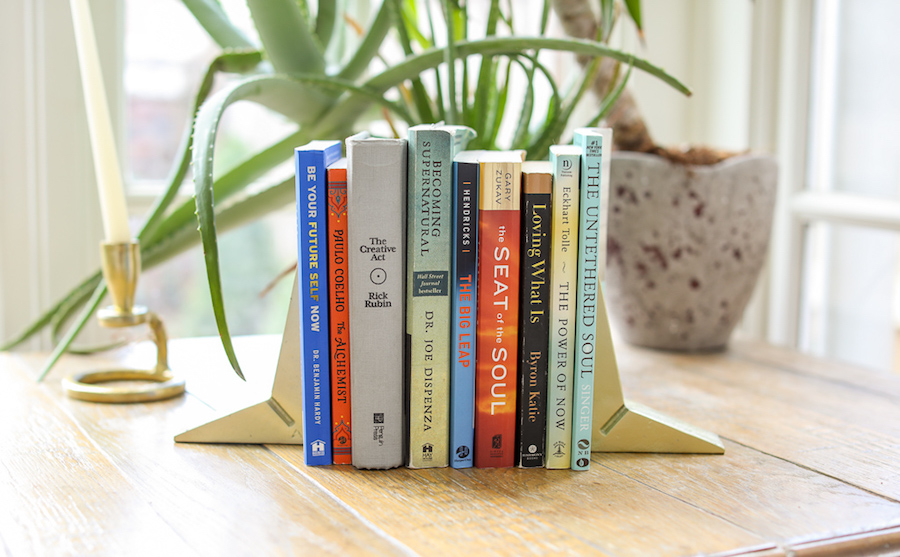I have been having some insights on my meditation cushion these days. This morning I found myself ruminating about a current situation with work. As it tends to happen during meditation, there is this ebb and flow of being lost in thought, then a spark of consciousness that you are in fact thinking instead of practicing presence, so you bring your attention back to your breath. You do this over and over again for however long you have decided to sit there. This to me is more powerful than attempting to completely clear your mind, because it is this skill that you bring into your every day life.
So as I was *thinking* about the work stuff, in that spark of consciousness, three very liberating words came through for me: We shall see. It felt so freeing! And it is so true because yes, we shall. Worrying won’t get me anywhere. I toss and turn the thoughts in my mind because I believe that is the mind’s way of seeking a solution. This is simply a habit, but also the workings of the human mind. The mind doesn’t like to not know. But it can’t know. Not for certain. When I heard those words, I immediately thought of a proverb my husband once shared with me:
Once upon a time, there was an old farmer who had worked his crops for many years.
One day his horse ran away. Upon hearing the news, his neighbors came to visit. “Such bad luck,” they said sympathetically, “you must be so sad.”
“We shall see,” the farmer replied.
The next morning the horse returned, bringing with it two other wild horses.
“How wonderful,” the neighbors exclaimed! “Not only did your horse return, but you received two more. What great fortune you have!”
“We shall see,” answered the farmer.
The following day, his son tried to ride one of the untamed horses, was thrown, and broke his leg. The neighbors again came to offer their sympathy on his misfortune. “Now your son cannot help you with your farming,” they said. “What terrible luck you have!”
“We shall see,” replied the old farmer.
The following week, military officials came to the village to conscript young men into the army. Seeing that the son’s leg was broken, they passed him by. The neighbors congratulated the farmer on how well things had turned out. “Such great news. You must be so happy!”
The man smiled to himself and said once again.
“We shall see.”
CHINESE PROVERB
I could leave it at that. We shall see. However, amidst the mindfulness, sometimes I still need tangible tools to navigate certain situations and soften the rumination. If you would feel the same way, here are a few things you can do when you find yourself faced with a problem or issue.
Focus on what you can control.
Write it down and make a list. Putting pen to paper is powerful as it gets your thoughts out of your mind and clearly laid out before you. If your list includes tasks that need to be completed before the problem can be solved, block off time in your calendar to tend to them. Make these items an appointment with yourself like you would any other meeting or project.
Detach from the outcome.
The mind has preferences. Whether it is in what you eat, what movie you watch, how you want your partner or children to behave, or how you would like a situation to unfold. Notice your preferences, allow them to be there, but then detach your emotional state from them. Do the best you can with the information that you have, and let the rest go.
Surrender and trust.
We shall see. You never know how something will play out, but trust that it is in your favor. If whatever comes to be isn’t exactly what you wish could have been, focus on the lessons learned. What did you learn, both in general and about yourself? How did you grow from it? Did it strengthen any skills, bring people and new relationships into your life that otherwise wouldn’t be there? Did it make you stronger or empower you in any way? If anything, did it teach you to let go, ride the wave, go with the flow, loosen your grip on life? That in and of itself is a gift.










